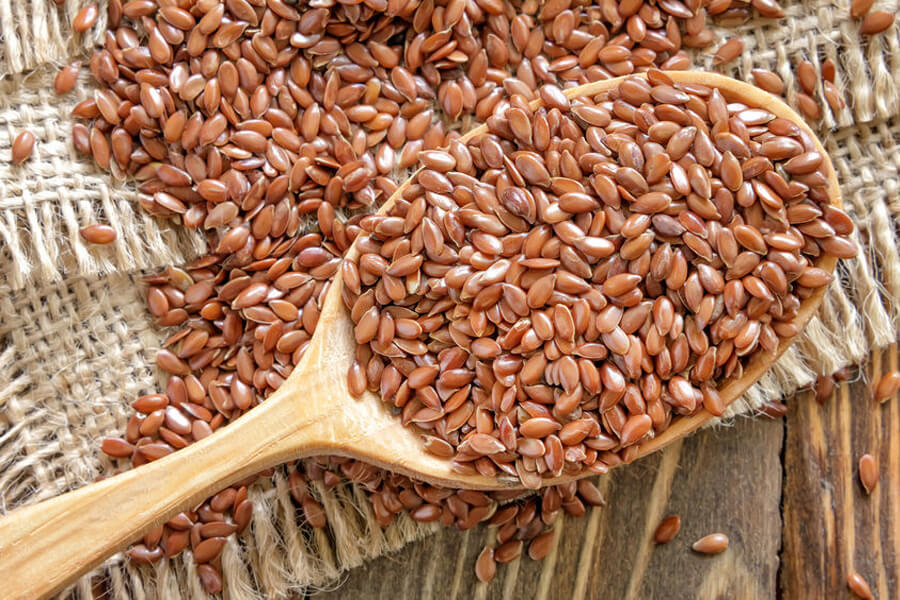Most medical experts agree that flaxseed can help manage cholesterol and fight inflammation, a new study suggests it may also help reduce obesity.
Flaxseed’s effects on the gut
Researchers from Sweden’s University of Gothenburg and Denmark’s University of Copenhagen conducted a study to determine if flaxseed could positively impact obesity and metabolic health.
The researchers put mice into four groups and gave each group a different diet.
• Group 1, which served as the control, was fed a standard diet with 4.6% soy-derived fiber
• Group 2 ate a high-fat, no fiber diet
• Group 3 ate a high-fat diet with 10% indigestible cellulose fiber
• Group 4 ate a high-fat diet with 10% flaxseed fiber
The scientists took measurements on everything from how much food the mice ate, how much water they drank and their blood sugar levels, to how much energy they expended, how much oxygen they used and how much carbon dioxide they produced.
The results of the diets
After 12 weeks, the team took samples from each mouse’s large intestine to determine the bacterial content. They found:
• Group 2 (high-fat, no-fiber diet) had fewer “good” gut bacteria, fewer “good” fatty acids and high levels of the bacteria associated with obesity.
• Groups 3 and 4 had a healthy balance of bacterial diversity in the gut.
• Group 4 was more physically active and had less weight gain than the other groups.
How flaxseed helps
The researchers theorize that the gut bacteria help break up the fibers in the flaxseed’s shell, which then produces more of the good fatty acids.
“Our data suggest that flaxseed fiber supplementation affects host metabolism by increasing energy expenditure and reducing obesity as well as by improving glucose tolerance,” the researchers write.
The results were published in the American Journal of Physiology: Endocrinology and Metabolism and in APSselect.


